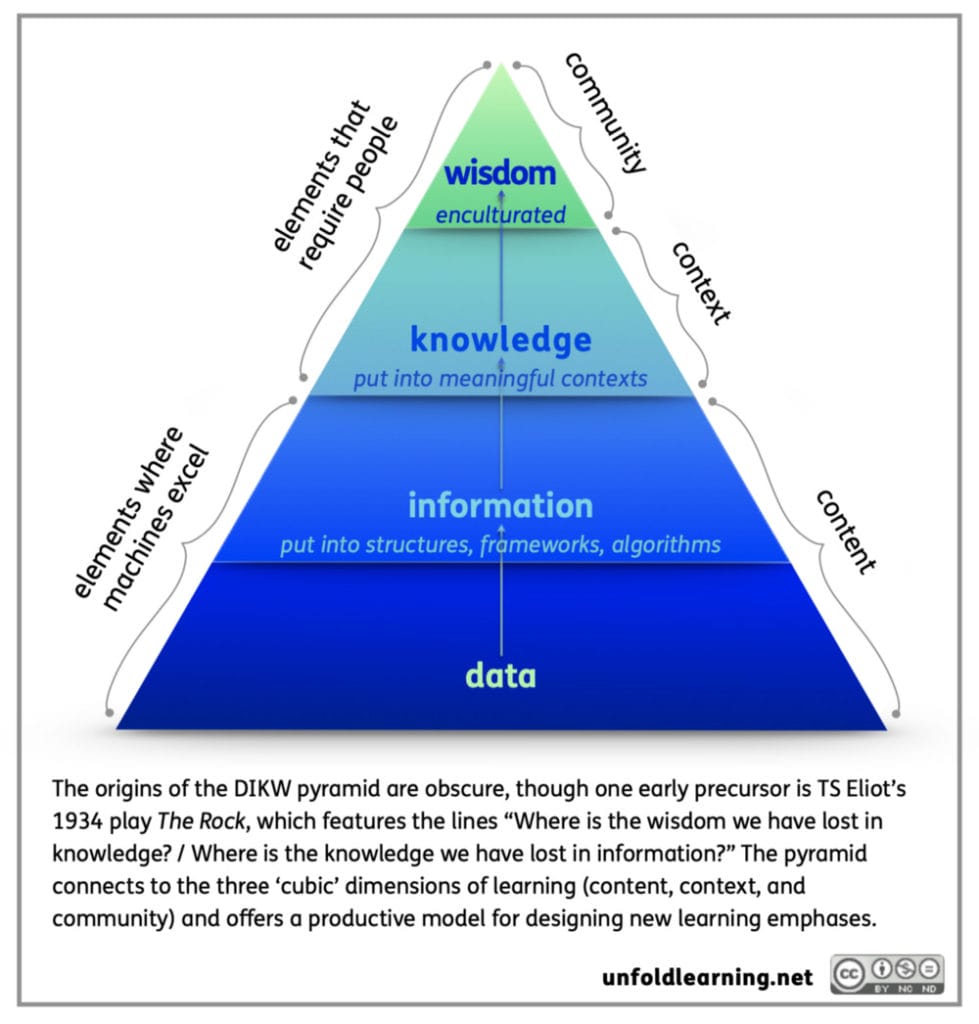Learning Community as Mutual Improvement Society
A learning community is like a mutual improvement society, much as an online course is like a self-help book. Both can be useful. Learning communities are best for sharing experiences and developing wisdom or mastery.
Mutual improvement societies (see 10:06 in the video above) emerged as an alternative education option to mechanics’ institutes in early 19th century England. Mechanics’ institutes combined a lending library and lectures to bring literacy and scientific and technical knowledge to working-class people for the benefit of society (as defined by the institutes’ middle- and upper-class funders). Apparently, mutual improvement societies offered education without the condescension of the mechanics’ institute.
Like mutual improvement societies 200 years ago, today’s learning communities are particularly useful when:
-
The topics are complex and can, therefore, benefit from cognitive diversity.
-
The questions are related to the application of knowledge: what is the right tool for the job at hand?
-
The value of the desired outcome of a conversation is greater than the cost of coordination and facilitation.
The Hierarchy of Wisdom
Consider the hierarchy of wisdom, also known as the DIKW Pyramid:

- Data consists of raw, unstructured experiences and phenomena. Data lacks meaning.
- Information names and partitions data into categories.
- Knowledge means understanding correlative, causal, and logical relationships. Knowledge organizes information and is often encapsulated in the form of models.
- Wisdom is the ability to identify and apply relevant knowledge.
Online Courses are Manufactured
Online courses feature a guru—a sage-on-the-stage—who conveys information and knowledge. Communication is primarily one-to-many and emphasizes the delivery of content.
The revenue model of an online course is typically transactional. Online courses offer the prospect of relatively fast initial growth, but long-term growth tends to be linear—it’s largely a function of advertising.
Learning Communities are Cultivated
Learning communities emphasize conversation. Although they benefit from guides or facilitators, communication is characterized as peer-to-peer. Learning communities are best for sharing experiences and developing wisdom or mastery. That is, they are effective at evaluating the conditions under which accumulated knowledge is best applied.
Learning communities have membership subscription models. Initial growth can be slow. However, strong word-of-mouth referrals can drive exponential growth in the long term.
